- Home
- Brian Lumley
Necroscope IV: Deadspeak n-4 Page 4
Necroscope IV: Deadspeak n-4 Read online
Page 4
It is anger, is it not, Dumiitruuu? No?
Fear, perhaps?
You fear for your life, Dumiitruuu? The voice had sunk to a whisper now, but insidious as the drip of a slow acid. But you shall have your life, my son — in me! The blood is the life, Dumiitruuu — and that shall go on and on… aaand…
But there! Now the voice sprang alive, became merry. Why, we were grown morose, and that must never be! What? But we shall be as one, and live out all our life together. Do you hear me, Dumiitruuu?… Well?
‘I… I hear you,’ the youth answered, speaking to no one.
And do you believe me? Say it — say that you believe in me, as your father’s fathers believed in me.
Dumitru was not sure he did believe, but the owner of the voice squeezed inside his head until he cried out: ‘Yes!… yes, I believe, just as my fathers believed.’
Very well, said the voice, apparently placated. Then don’t be so shy, Dumiitruuu: look upon my works without averting your eyes, without shrinking back. The pictures painted and graven in the walls — the many amphorae in their racks — the salts and powders contained in these ancient vessels.
In the daring torchlight Dumitru looked. Racks of black oak standing everywhere, and on their shelves numberless jars, urns: amphorae, as the voice had termed them. Throughout these rooms in this subterranean hideaway, there must be several thousands of them, all tight-stoppered with plugs of oak in leaden sheaths, all with faded, centuries-stained labels pasted to them where handles joined necks. One rack had been shattered, thrown aside by a falling ceiling stone; its jars had been spilled, some of them breaking open. Powders had trickled out, forming small cones which themselves had taken on the dust of decades. And when Dumitru looked at these spilled remains…
See how fine they are, these essential salts, whispered the voice in his head, which now contained a curiosity of its own, as if even the owner of that voice were awed by this ghoulish hoard. Stoop down, feel them in your hands, Dumiitruuu.
The youth could not disobey; he sifted the powders, which were soft as talc and yet free as mercury; they ran through his fingers and left his hands clean, without residue. And while he handled the salts in this fashion, so the Thing in his mind gave a mental sniff: it seemed to taste of the essence of what it had bade Dumitru examine. And:
Ah… he was a Greek, this one! the voice informed. / recognize him — we conversed on several occasions. A priest from Greek-land, aye, who knew the legends of the Vrykoulakas. He’d crusaded against them, he said, and carried his crusade across the sea to Moldavia, Wallachia, even to these very mountains. He built a grand church in Alba lulia, which possibly stands there even to this day, and from it would go out among the towns and villages to seek out the monstrous Vrykoulakas.
Individuals of the townspeople would name their enemies, often knowing them for innocents; and depending on the power or stature of the accuser, the ‘Venerable’ Arakli Aenos — as this one was called — would ‘prove’ or ‘disprove’ the accusation. For example: if a famous Boyar gave evidence that such and such persons were bloodsucking demons, be sure that the Greek would discover them as such. But only let a poor man bring such a charge, however faithfully, and he might well be ignored or even punished for a liar! A witchfinder and a fake, old Aenos, who upon a time accused even myself! Aye, and I must needs flee to escape them from Visegrad who came to put me down! Oh, I tell you, it was a very troublesome business, that time.
But… time settles many a score. Ashes to ashes, dust to dust. When he died they buried the old fraud in a lead-lined box in Alba lulia, beside the church he’d built there. What a boon! For just exactly as had been intended, so the imperishable lead of his coffin sufficed to keep out the seepage and worms and all manner of rodent malefactor — until a time one hundred years later when I dug him up/ Oh, yes — we conversed on several occasions. But in the end, what did he know? Nothing! A fraud, a faker!
Still, I evened the score. That pile of dust you sifted there: Arakli Aenos himself-and ah, how he screeaaamed when I gave him back his form and flesh, and burned the dog with hot ironsss! Ha-haa-haaa!
Dumitru hissed his horror and snatched back his fingers from the strewn ‘salts’. He flapped his hands as if they too were burned with hot irons, blew on them, wiped them trembling down his coarsely woven trousers. He lurched upright and backed away from the broken urns, only to crash into another rack which stood behind him. He fell sprawling in dust and powder and salts; but his confusion had served to clear his mazed mind a little — which the owner of the voice at once recognized, so that now he tightened his grip.
Steady now, steady, my son! Ah, I see: you think I torment you to no purpose — you believe I derive pleasure from such instruction. But no, no -1 deem it only fair that you should know the gravity of the service you perform. You make unto me a considerable offering: of succour, sustenance, replenishment. Wherefore I grant you knowledge… for however short a time. Now stand up, stand tall, hear well my words and follow their directions.
The walls, go to the walls, Dumiitruuu. Good! Now trace the frescoes — with your eyes, my son, and with your hands. Now look and learn:
Here is a man. He is born, lives his life, dies. Prince or peasant, sinner or saint, all go the same way. You see them there in the pictures: holy men and blackguards alike, moving swiftly from cradle to grave, rushing headlong from the sweet, warm moment of conception to the cold, empty abyss of dissolution. It is the lot of all men, it would seem: to become one with the earth, and all the lessons learned in their lives wasted, and their secrets remaining secret unto them alone forever…
Oh?
But some there are whose remains, by circumstance of their interment — like the Greek priest, perhaps — remain intact; and others, perhaps cremated and buried in jugs, whose powdered ashes are kept apart from the earth and pure. There they lie, a crumbled bone or two, a handful of dust, and in them all the knowledge of their waking seasons, all the secrets of life and sometimes of death — and maybe even conditions between the two — which they took with them to the grave. All lost.
And again I say… oh?
And you will say: but what of knowledge in books, or knowledge passed down by word of mouth, or carved in stone? Surely a learned man, if he so desire, may leave his knowledge behind him for the benefit of others to come after?
What? Stone tablets? Bah! Even the mountains are worn down and the epochs they have known blown away as dust. Word of mouth? Tell a man a story and by the time he retells it the theme is altered. After twenty tellings it may not even be recognized! Books? Given a century and they wither, two and they become so brittle as to snap, three — they crumble into nothing! No, don’t speak of books. They are the most fragile of things. Why, there was once in Alexandria the world’s most wondrous library… and where pray are all of those books now? Gone, Dumiitruuu. Gone like all the men of yesteryear. But unlike the books, the men are not forgotten. Not necessarily.
And again, what if a man does not desire to leave his secrets behind him?
But enough of that for now; for see, the frescoes are changed. And here is another man… well, at least we shall call him a man. But strange, for he is not only conceived of man and woman. See for yourself: for parent he has… but what is this? A snake? A slug? And the creature issues an egg, which the man takes in unto him. And now this most fortunate person is no longer merely human but… something else. Ah! — and see — this one does not die but goes on and on! Always! Perhaps forever.
Do you follow me, Dumiitruuu? Do you follow the pictures on the wall? Aye, and unless this very special One is slain by some brutal man who has the knowledge — or dies accidentally, which may occur upon a time — why, then he will go on forever! Except… he has needs, this One. He may not sustain himself like ordinary men. Rather, he knows better sources of sustenance! The blood is the life…
Do you know the name of such a One, my son?
‘I… I know what such men are called,’ Dumitr
u answered, though to an outside observer it would have seemed that he was speaking to a vault empty of life other than his own. ‘The Greeks call them “Vrykoulakas”, as you have made mention; the Russians “Viesczy”; and we travellers, the Szgany, we call them “Moroi” — vampires!’
There is another name, said the voice, from a land far, far away in space and time. The name by which they know themselves: Wamphyri! And for a moment, perhaps in a certain reverence, the voice paused. Then:
Now tell me, Dumiitruuu: do you know who I am? Oh, I know, I’m a voice in your head, but unless you’re a madman the voice must have a source. Have you guessed my identity, Dumiitruuu? Perhaps you’ve even known it all along, eh?
‘You are the Old One,’ Dumitru gulped, his Adam’s apple bobbing, throat dry as a stick. ‘The undead, undying patron of the Szgany Zirra. You are Janos, the Baron Ferenczy!’
Aye, and you may be a peasant but you’re in no wise ignorant, answered the voice. Indeed, I am that One! And you are mine to command as I will. But first a question: is there one among your father Vasile Zirra’s band whose hands are three-fingered? A child, perhaps, male, born recently, since last you Szgany were here? Or perhaps a stranger you’ve seen on your travels, who desired to join your company?
A strange question, some would think, but not Dumitru. It was part of the legend: that one day a man would come with three fingers on his hands instead of the usual four. Three broad, strong fingers and a thumb to each hand; born that way and natural enough; neither surgically contrived nor even grotesque to look upon. ‘No,’ he answered at once. ‘He has not come.’
The voice gave a mental grunt; Dumitru could almost see the impatient shrug of broad, powerful shoulders. And: Not come, the voice of Janos Ferenczy repeated his words. Not yet come.
But the attitude of the unseen presence was mercurial; it changed in a moment; disappointment was put aside and resignation took its place. Ah, well, and so I wait out the years. What is time to the Wamphyri anyway, eh?
Dumitru made no answer. In examining the faded frescoes he had reached a part of the wall which showed several very gruesome scenes. The frescoes were like a tapestry, telling a story in pictures, but these pictures were straight out of nightmare. In the first, a man was held down by four others, one to each limb. A fifth tormentor in Turkish breeches stood over him with a curved sword raised high, while a sixth kneeled close by with a mallet and sharp stake of wood. In the next picture the victim had been beheaded and the stake driven through him, pinning him down — but a huge, fat, sluglike worm or snake was emerging from his severed neck, so that the men about him reared back in horror! In a third picture the men had encircled the Thing with a ring of torches and were burning it; likewise the head and body of its once-host, upon a pile of faggots. The fourth and penultimate scene of the set was of a priest, swinging his censer in one hand, while with the other he poured the vampire’s ashes into an urn. Presumably it was a rite of exorcism, of purification. But if so, then it was mistaken, wasted.
For the final scene was of the same urn, and above it a black bat in flight, rising like a phoenix from the ashes. Indeed, the very sigil of the Ferenczy! And:
Aye, said Janos darkly, in Dumitru’s head, but not until the advent of the three-fingered man. Not until he comes, the true son of my sons. For only then may I escape from one vessel into the next. Ah, for there are vessels and there are vessels, Dumiitruuu, and some of them are of stone…
Again the youth’s mind had started to unmaze itself. Of his own will, suddenly he saw how low his torch had burned where he’d placed it in a stone bracket on the wall. He took it down and tremblingly lit another from it, waving it a little to get the flame going. And licking his dry lips, he looked at the myriad urns and wondered which one held his tormentor. How easy it would be to shatter the thing, scatter its dust, thrust his torch amongst those sentient remains and see if they’d burn a second time.
Janos was not slow to note the resurgence of Szgany will, or to read the threat in the mind he’d mastered. He chuckled voicelessly and said: Ah, not here, not here, Dumiitruuu! What? You’d have me lie among scum? And could it be I heard you thinking treacherous thoughts just then? Still, you’d not be of the blood if you didn’t, eh? And again his evil chuckle, following which: But you were right to rekindle your torch: best not let the flame die, Dumiitruuu, for it’s an exceeding dark place you’ve come to. Also, there’s yet a thing or two I want to show you, for which we’ll need the light. Now see, there’s a room to your ‘right, my son. Go in through the archway, if you will, and there discover my true lair.
Dumitru might have struggled with himself… but useless; the vampire’s grip on his mind had returned more solid than ever. He did as instructed, passing under the arch and into a room much like the others except for its appointments. No racks of amphorae or frescoed walls here; the place was more habitation than warehouse; woven tapestries were on the walls, and the floor was of green-glazed tiles set in mortar. Centrally, a mosaic of smaller tiles described the prophetic crest of the Ferenczy, while to one side and close to a massive fireplace stood an ancient table of dense, black oak.
The wall hangings were falling into mouldering tatters and the dust lay as thick here as anywhere, but yet there was a seeming anomaly. Upon the desk were papers, books, envelopes, various seals and waxes, pens and inks: modern things by comparison with anything else Dumitru had seen. The Ferenczy’s things? He had assumed the Old One to be dead — or undead — but all of this seemed to suggest otherwise.
No, the Baron’s viscous mental voice contradicted him, not mine but the property of… shall we say, a student of mine? He studied my works, and might even have dared to study me! Oh, he knew well enow the words to call me up, but he did not know where to find me, nor even that I was here at all! But alas, I fancy he’s no more. Most likely his bones adorn the upper ruins somewhere. It shall delight me to discover them there one day, and do for him what he might so easily have done for me!
While the voice of Janos Ferenczy so darkly and yet obscurely reminisced, so Dumitru Zirra had crossed to the table. There were copies of letters there, but not in any language he could read. He could make out the dates, though, from fifty years earlier, and something of the far-flung postal addresses and addressees. There had been a M. Raynaud in Paris, a Josef Nadek in Prague, one Colin Grieve in Edinburgh, and a Joseph Curwen in Providence; oh, and a host of others in the towns and cities of as many different lands again. The writer to all of these names and addresses, as witness his handwriting on the browned paper, was one and the same person: a certain Mr Hutchinson, or ‘Edw. H.’, as he more frequently signed himself.
As for the books: they meant nothing to Dumitru. A peasant, however much travelled and practised in certain tongues and dialects, such titles as the Turba Philosopho-rum, Bacon’s Thesaurus Chemicus and Trithemius’s De Lapide Philosophico meant nothing to him. Or if they did, he made no real connection.
But in one book which still lay open, and despite the dust lying thick on its pages, Dumitru saw pictures which did mean something, and something quite horrific. For there, in painstaking and pain-giving detail, were shown a series of the most hideous and brutal tortures, the like of which caused him — even half-hypnotized as he was — to flinch and draw back a little, distancing himself from the page. But in the next moment his eyes were drawn to the rest of that room’s appurtenances, which until now had not impressed themselves upon his mind; that is, to the great manacles fastened to the walls by heavy chains, to certain badly corroded implements idly tossed to the floor in one corner, and to the several iron braziers which still contained the ashes of olden fires.
Before he could give these items any further attention, however, if he had wanted to:
Dumiitruuu, crooned that gurgling voice in his head, now tell me: have you ever thirsted? Have you ever wandered in a dry desert, with never sight nor sign of water, and felt your throat contract to a throbbing ulcer through which you can scarce draw brea
th? Well, possibly you may have known a time when you felt dry as salt, which might help you to understand something of the way I feel now. But only something of it. Certainly you have never been as salt. Ah, if only I could describe my thirst, my son!
But enough; I’m sure now that you perceive something of my arts, my meaning, my power and destiny, and that the requirements of One such as I have importance far above any question of common life and lives. And the time has come to introduce you to the final mystery, wherein we both shall know the most exquisite ecstasies. The great chimney, Dumiitruuu — go in.
Go into a chimney, a fireplace? Dumitru looked at it, felt the urge to draw back from it, and could not. Massively built, the fire-scarred hole was all of four feet wide and five high, arched over and set with a central keystone at its top; he need stoop only a little to pass inside. Before doing so he lit another torch — a pause which Janes Ferenczy saw as a sign of hesitancy. Quickly now, Dumiitruuu, the awful voice urged, for even in dissolution — no, especially in dissolution — my need is not to be kept waiting. It is such that I cannot endure it.
Dumitru passed into the fireplace, held up his torch to light the place. Above him soared a wide, scorched flue, which angled back gradually into the wall. Holding his torch away, the youth looked for light from above and saw only darkness. That was not strange: the chimney must pass through several angles in its climb to the surface, and of course it would be blocked where the upper regions lay in ruins.
Bringing the torch close again, Dumitru saw iron rungs set in the sloping back wall of the flue. In its heyday, the castle’s chimneys would need sweeping from time to time. And yet… there was no accumulation of soot such as might be expected; apart from a superficial scorching, the chimney seemed hardly used at all.
Oh, it has been used, my son, Janos Ferenczy’s mental voice chuckled obscenely. You shall see, you shall see. But first, step aside a little. Before you ascend there are those who must descend! Small minions of mine, small friends…

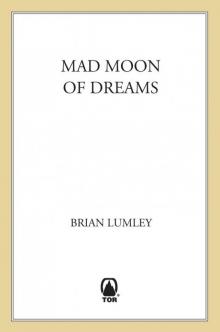 Mad Moon of Dreams
Mad Moon of Dreams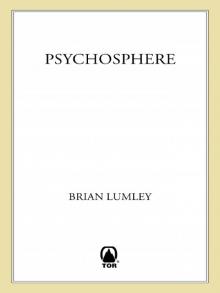 Psychosphere
Psychosphere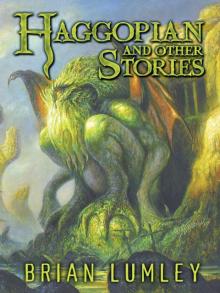 Haggopian and Other Stories
Haggopian and Other Stories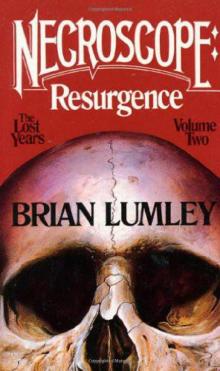 Resurgence_The Lost Years_Volume Two
Resurgence_The Lost Years_Volume Two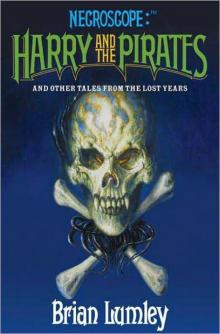 Necroscope: Harry and the Pirates: And Other Tales From the Lost Years
Necroscope: Harry and the Pirates: And Other Tales From the Lost Years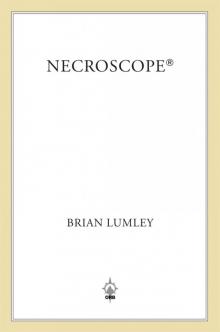 Necroscope®
Necroscope®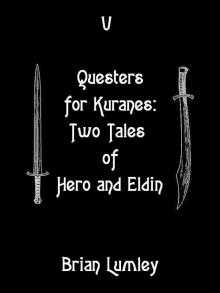 Dreamlands 5: Questers for Kuranes: Two Tales of Hero and Eldin
Dreamlands 5: Questers for Kuranes: Two Tales of Hero and Eldin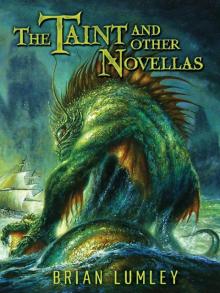 The Taint and Other Novellas: Best Mythos Tales Volume 1
The Taint and Other Novellas: Best Mythos Tales Volume 1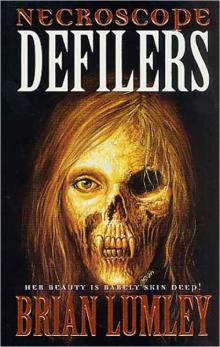 Necroscope: Defilers
Necroscope: Defilers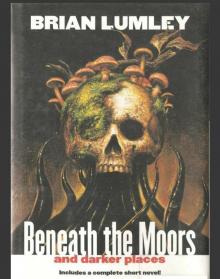 Beneath the Moors and Darker Places
Beneath the Moors and Darker Places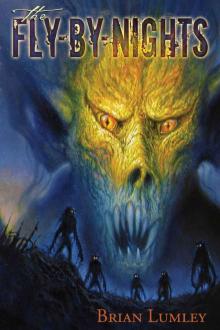 The Fly-By-Nights
The Fly-By-Nights Khai of Khem
Khai of Khem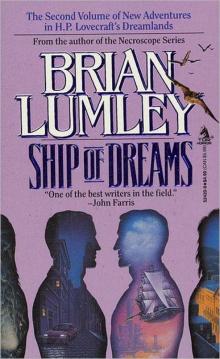 Ship of Dreams
Ship of Dreams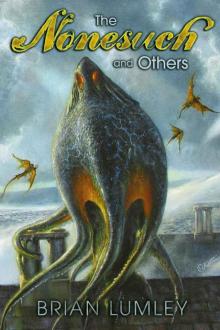 The Nonesuch and Others
The Nonesuch and Others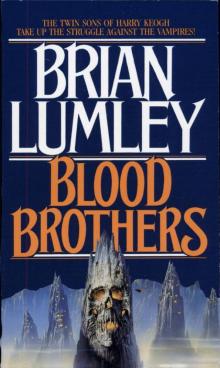 Blood Brothers
Blood Brothers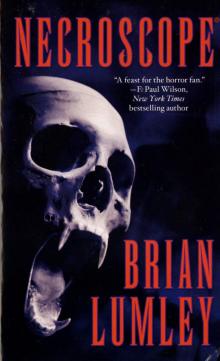 Necroscope
Necroscope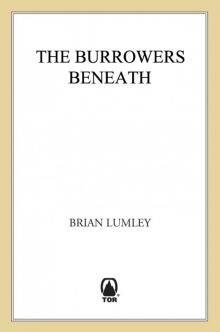 The Burrowers Beneath
The Burrowers Beneath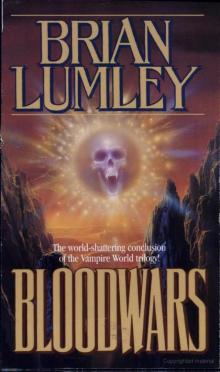 Bloodwars
Bloodwars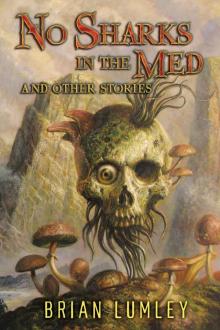 No Sharks in the Med and Other Stories
No Sharks in the Med and Other Stories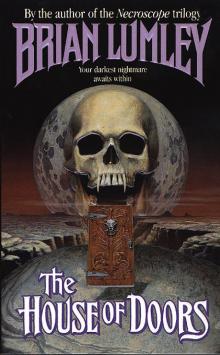 The House of Doors - 01
The House of Doors - 01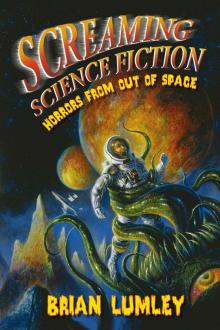 Screaming Science Fiction
Screaming Science Fiction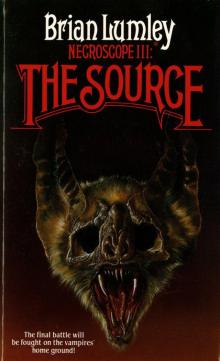 Necroscope III: The Source
Necroscope III: The Source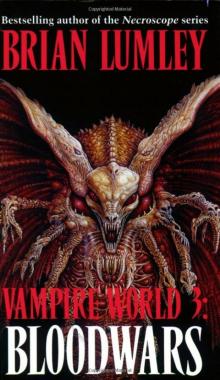 Vampire World I: Blood Brothers
Vampire World I: Blood Brothers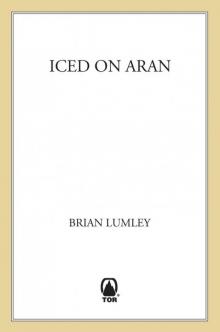 Iced on Aran
Iced on Aran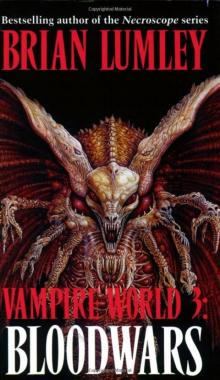 Necroscope: Invaders
Necroscope: Invaders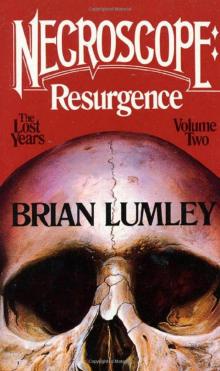 Necroscope: The Lost Years
Necroscope: The Lost Years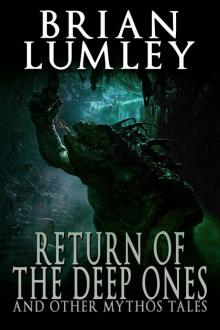 Return of the Deep Ones: And Other Mythos Tales
Return of the Deep Ones: And Other Mythos Tales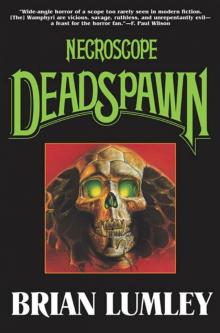 Necroscope V: Deadspawn
Necroscope V: Deadspawn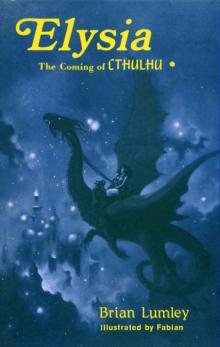 Titus Crow, Volume 3: In the Moons of Borea, Elysia
Titus Crow, Volume 3: In the Moons of Borea, Elysia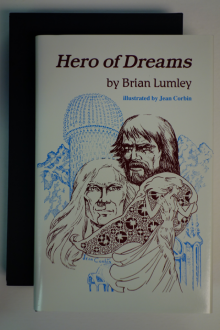 Hero of Dreams
Hero of Dreams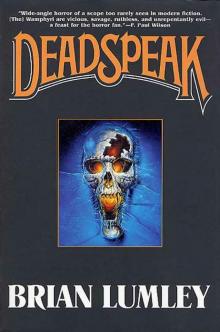 Necroscope IV: Deadspeak
Necroscope IV: Deadspeak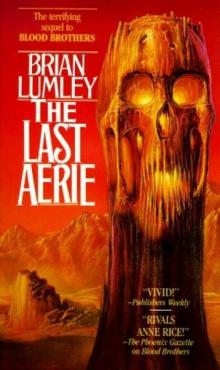 The Last Aerie
The Last Aerie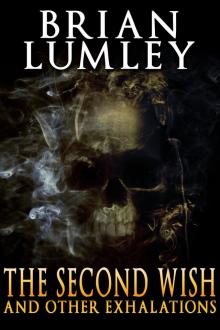 The Second Wish and Other Exhalations
The Second Wish and Other Exhalations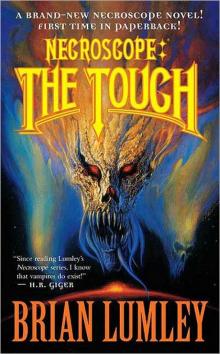 Necroscope: The Touch
Necroscope: The Touch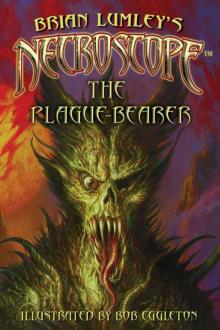 Necroscope: The Plague-Bearer
Necroscope: The Plague-Bearer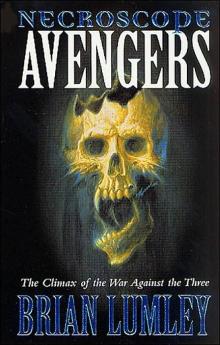 Necroscope: Avengers
Necroscope: Avengers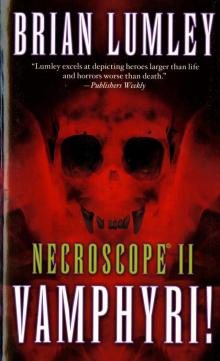 Necroscope II: Wamphyri
Necroscope II: Wamphyri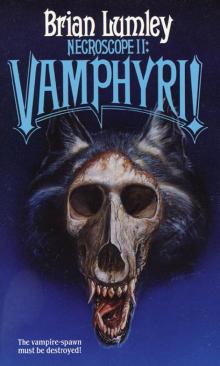 Necroscope II_Vamphyri!
Necroscope II_Vamphyri!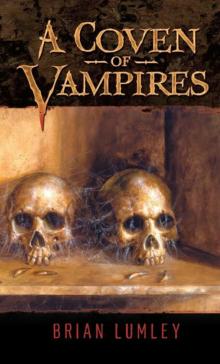 A Coven of Vampires
A Coven of Vampires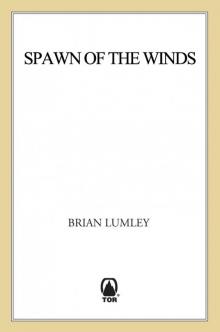 Spawn of the Winds
Spawn of the Winds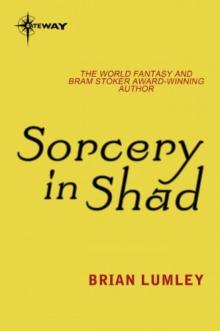 Sorcery in Shad
Sorcery in Shad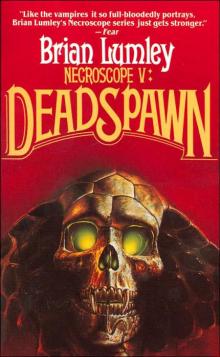 Deadspawn
Deadspawn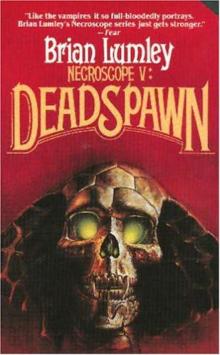 Necroscope V: Deadspawn n-5
Necroscope V: Deadspawn n-5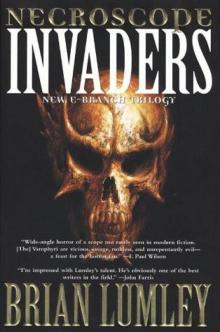 Necroscope: Invaders e-1
Necroscope: Invaders e-1![Beneath the Moors and Darker Places [SSC] Read online](http://i1.bookreadfree.com/i/03/20/beneath_the_moors_and_darker_places_ssc_preview.jpg) Beneath the Moors and Darker Places [SSC]
Beneath the Moors and Darker Places [SSC]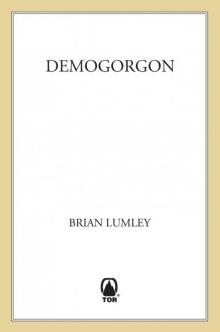 Demogorgon
Demogorgon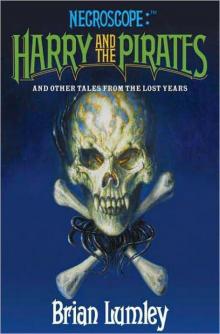 Harry and the Pirates_and Other Tales from the Lost Years
Harry and the Pirates_and Other Tales from the Lost Years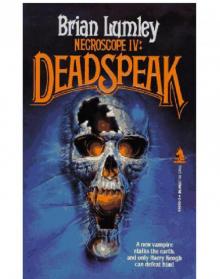 Necroscope IV: Deadspeak n-4
Necroscope IV: Deadspeak n-4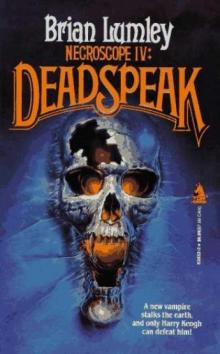 Deadspeak
Deadspeak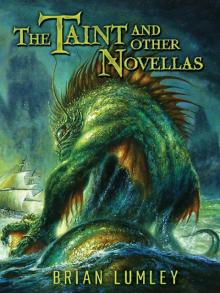 The Taint and Other Novellas
The Taint and Other Novellas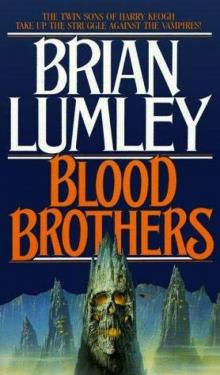 Blood Brothers vw-1
Blood Brothers vw-1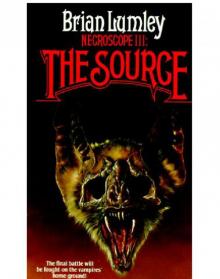 The Source n-3
The Source n-3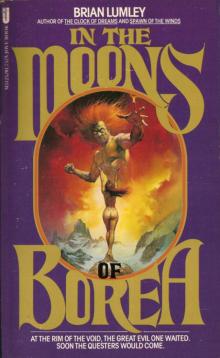 In the Moons of Borea
In the Moons of Borea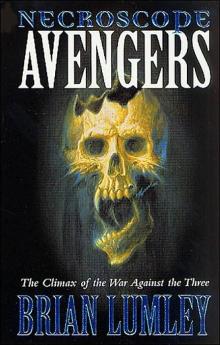 Avengers
Avengers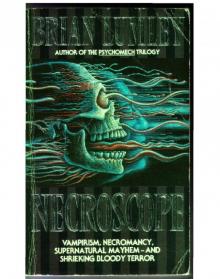 Necroscope n-1
Necroscope n-1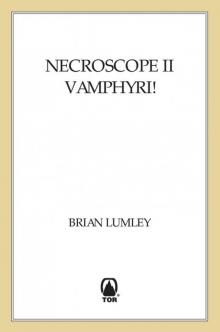 Vamphyri!
Vamphyri!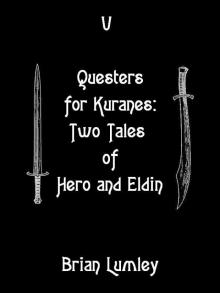 Questers for Kuranes: Two Tales of Hero and Eldin
Questers for Kuranes: Two Tales of Hero and Eldin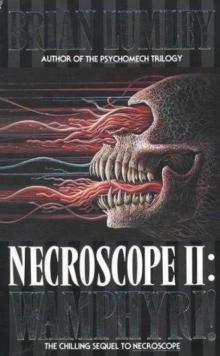 Necroscope II: Wamphyri! n-2
Necroscope II: Wamphyri! n-2 The Source
The Source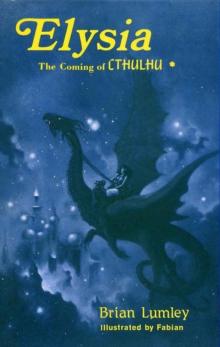 Elysia
Elysia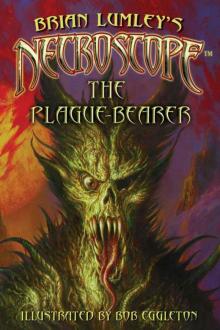 The Plague-Bearer
The Plague-Bearer The Touch
The Touch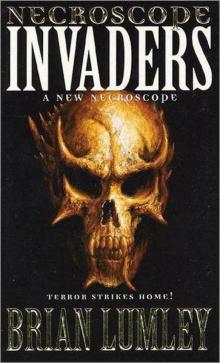 Invaders
Invaders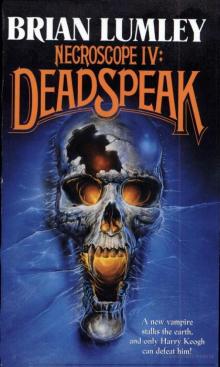 Necroscope 4: Deadspeak
Necroscope 4: Deadspeak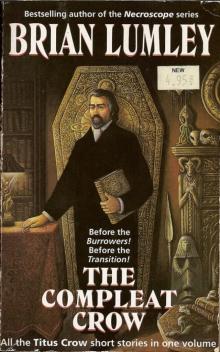 Compleat Crow
Compleat Crow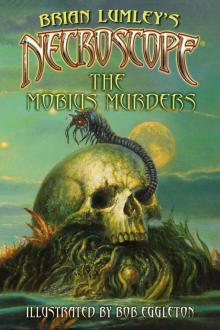 The Mobius Murders
The Mobius Murders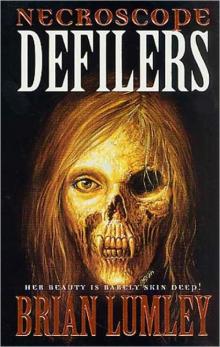 Defilers
Defilers